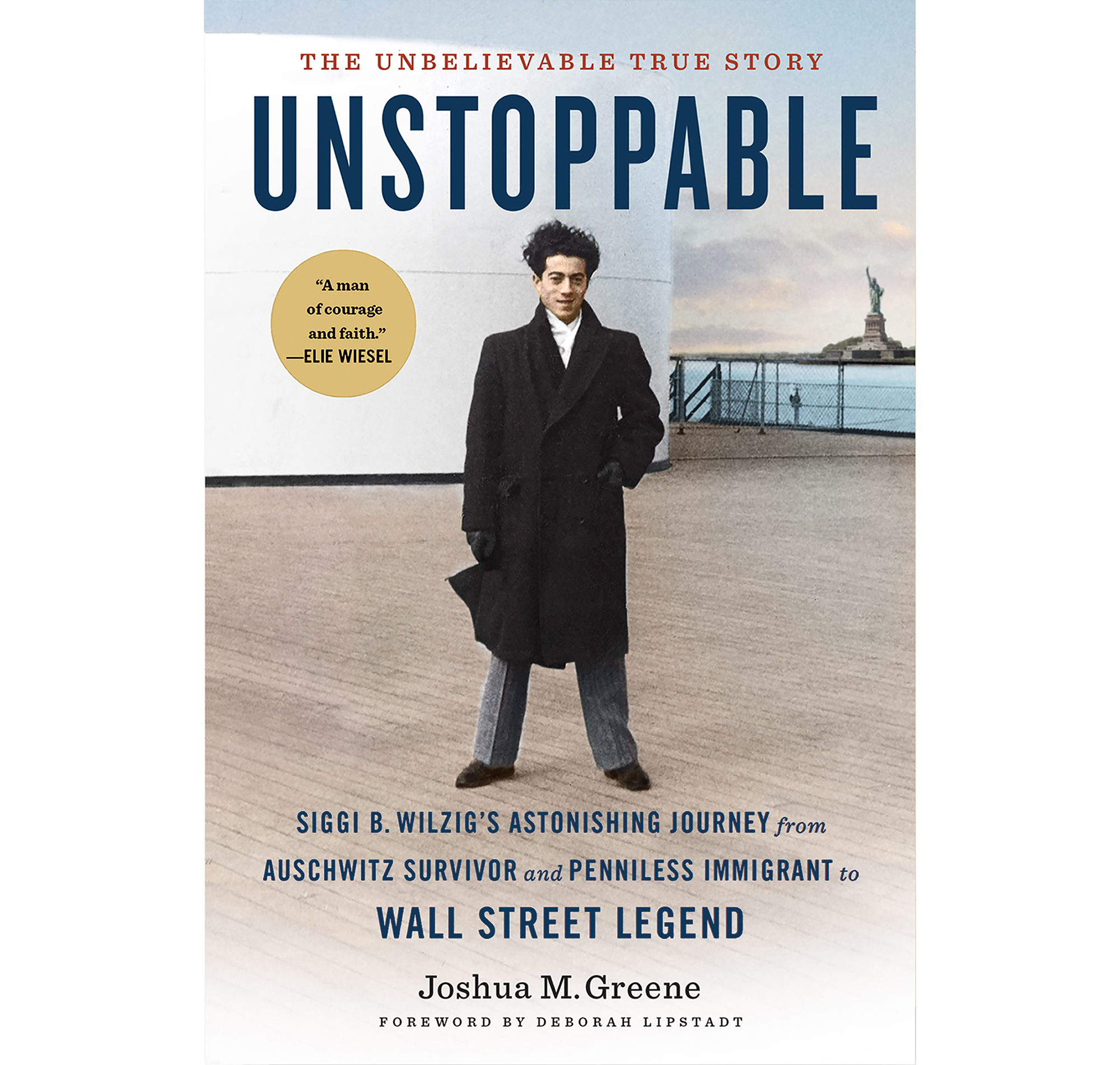
Reviewing: “Unstoppable: Siggi B. Wilzig’s Astonishing Journey from Auschwitz Survivor and Penniless Immigrant to Wall Street Legend” by Joshua M. Greene. Insight Editions. 2021. English. Hardcover. ISBN-10 : 164722215X
‘Unstoppable’ is one of the rare books where the main character captures readers’ attention from the first page and doesn’t let go. The compelling story of how a penniless Auschwitz survivor came to America and not only became a bank president, but the head of an oil company as well, reads almost like a work of fiction. After all, how could someone lacking in formal education head two major companies, meet with presidents of the United States, and even confront the Federal Reserve?
Siggi B. Wilzig’s life history as a survivor formed his outlook and work ethic. Reasoning that nothing he could face could possibly be worse than Auschwitz, he had the courage to be fearless in his business dealings while maintaining his personal code of ethics. He was fiercely loyal to those who helped him, particularly a fellow concentration camp survivor, Larry Nartel, who had saved his life. Wilzig partnered with Nartel when he started his business career as a traveling salesman, and continued to repay the “debt” by providing him employment in the bank. Wilzig’s bank, The Trust Company of New Jersey (TCNJ), was known as the “bank with a heart.” Unlike other banks, Wilzig believed in taking care of all customers. Even small customers deserve service, and their banking needs will continue to be served when they become large customers. Loyal, hard-working employees also were treated well, in contrast to parsimonious and severe cost-cutting measures used elsewhere. Wilzig’s philosophy was to treat employees like family, and he expected the employees to treat customers like “friends of the family.”
Being an Auschwitz survivor colored Wilzig’s perception and actions throughout his life. A proud Jew, he was the first survivor to address the US Military Academy at West Point, was a generous donor to many Jewish causes (in the United States and Israel), and was on the board of the Holocaust Museum.
The experiences also influenced business decisions. Wilzig would host business meetings at hotels with expansive, colorful gardens to compensate for the time he spent in the dirt, mud and filth of Auschwitz. He would often mention his Jewishness while in the presence of gentile senior business executives, at a time when these topics were not mentioned outside of synagogue. While dining at the Waldorf-Astoria, he told the maître d to make sure there was no shellfish in the food because he kept kosher. Questions such as this at a luxury hotel could hardly have been imagined when he was at Auschwitz eating putrid food and considering a stolen potato peel to be a marvelous gift. Wilzig felt that any time he could celebrate and enjoy nature or the birth of a Jewish child would be an antidote to what he had suffered previously.
Wilzig lamented only having a few years of primary school education and made sure that his children attended the most prestigious schools and universities before hiring them to work in one of his companies. The children did not get a “free ride” and start at the top; Wilzig ensured that they would have a solid understanding of the business and rotated them through various entry-level and junior management positions until he felt they were ready to move up.
Although lacking a formal education, Wilzig’s sharp mind and quick wit saved the day in many situations throughout his life. He more than made up for college degrees by reading up on business topics and studying the leaders in the field. He became head of Wilshire Oil Company by becoming a major stockholder and becoming elected to head the company board after presenting how the previous management’s ideas would lose a tremendous amount of money. He then used the synergies of the oil company assets and bank finances to create two strong companies that thrived until the Federal Reserve declared that the companies be separated. With standard chutzpah, Wilzig sued the Federal Reserve—but for the full story you will have to read the book.
The book is augmented with footnotes that help put perspective, background and more information that may not be provided in the narrative. I found it helpful to read a few footnotes ahead of where I was in the book so as not to interrupt the story as I was reading and better understand the topic. There are also pages of pictures of Wilzig as a young boy, in his post- Auschwitz years, as a young man in America, and throughout the rest of his life, making the reader feel almost an intimate part of the family.
Full of Wilzig’s anecdotes and tales, humor and stories, the book will keep the reader turning page after page to learn more. A world-class storyteller, comedian and charmer, the sense of humor and sharp wit that kept Wilzig alive in Nazi Germany makes the book entertainment of the first order. There are moments when the horrors of the concentration camps come back to haunt Wilzig that will haunt the reader as well. But it is important to read Wilzig’s incredible story and revel in the positives and understand the experiences that drove his success.
Readers from the central and northern New Jersey area may remember seeing advertisements for Wilzig’s bank, and may even have been a customer. Yet they had no idea that this incredible person lived within their midst. Picking up a copy of this book will provide a connection to local history and the Jewish community while providing a thrilling, edge of your seat read.
By Deborah Melman











